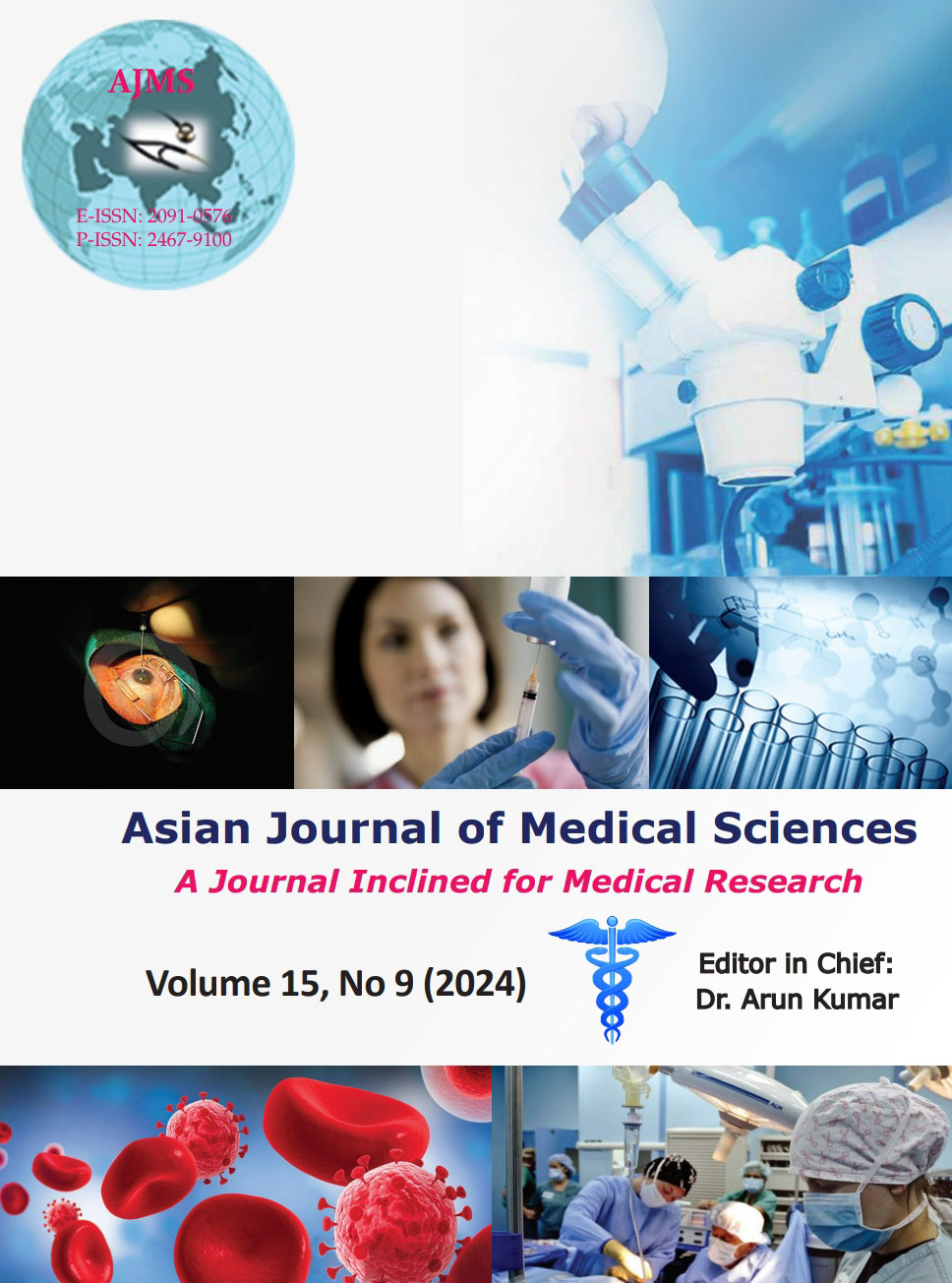Immunohistochemical expression of CD44 in invasive breast carcinoma
Keywords:
Carcinoma breast; Immunohistochemistry; CD44; Molecular expression; InvasiveAbstract
Background: In India, breast cancer forms the most common malignancy, accounting for 28.2% of all female cancers. Breast cancer consists of phenotypically diverse group of diseases. Due to different relapse abilities, doubling times, and different infiltrative capacities, it is important to identify potential biomarkers that could be used to screen high-risk patient and predict breast cancer prognosis in conjunction with classical pathological parameters.
Aims and Objectives: The present study was conducted to evaluate immunohistochemical expression of CD44 in breast carcinoma and to correlate CD44 expression with other clinicopathological parameters and molecular classification of carcinoma breast.
Materials and Methods: The present study was a prospective descriptive study conducted on 100 cases of carcinoma breast diagnosed on modified radical mastectomy specimens that were submitted to the Department of Pathology, Pt. B. D. Sharma, PGIMS, Rohtak, Haryana, over the period of 2 years.
Results: Out of 100, 64 cases (64%) were CD44 positive. Out of these 64 cases, 9 (9%) cases were 1+, 34 (34%) cases were 2+, and 21 (21%) cases showed 3+ positive expression of CD44 in tumor cells. Loss of CD44 expression was seen in 36 (36%) cases. A statistically significant association of CD44 was seen with multifocality of the tumor, negative estrogen receptor/progesterone receptor (ER/PR) expression, and molecular subtypes. No statistically significant association of CD44 was seen with age, side of tumor, lymph node metastasis, lymphovascular invasion, ductal carcinoma in situ and Ki67, and HER2neu expression.
Conclusion: A high CD44 expression in breast carcinoma correlates with aggressive tumor characteristics such as multifocality, negative ER/PR expression, and belonging to the basal subtype which is associated with poor prognosis. Conversely, low CD44 expression is linked to Luminal A and Luminal B subtypes which have good prognosis. These indicate the role of CD44 as a prognostic biomarker in the carcinoma breast.
Downloads
Downloads
Published
How to Cite
Issue
Section
License
Copyright (c) 2024 Asian Journal of Medical Sciences

This work is licensed under a Creative Commons Attribution-NonCommercial 4.0 International License.
Authors who publish with this journal agree to the following terms:
- The journal holds copyright and publishes the work under a Creative Commons CC-BY-NC license that permits use, distribution and reprduction in any medium, provided the original work is properly cited and is not used for commercial purposes. The journal should be recognised as the original publisher of this work.
- Authors are able to enter into separate, additional contractual arrangements for the non-exclusive distribution of the journal's published version of the work (e.g., post it to an institutional repository or publish it in a book), with an acknowledgement of its initial publication in this journal.
- Authors are permitted and encouraged to post their work online (e.g., in institutional repositories or on their website) prior to and during the submission process, as it can lead to productive exchanges, as well as earlier and greater citation of published work (See The Effect of Open Access).




